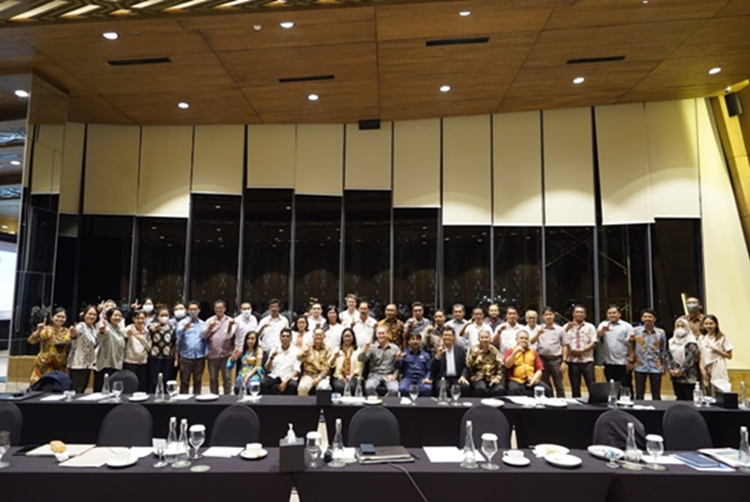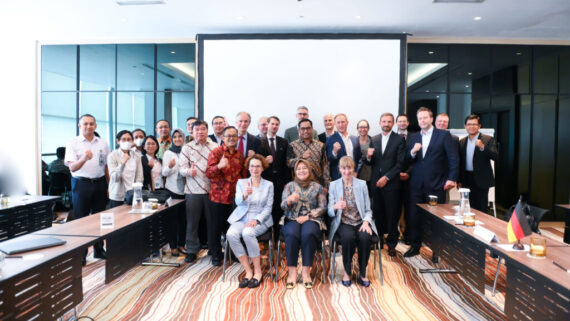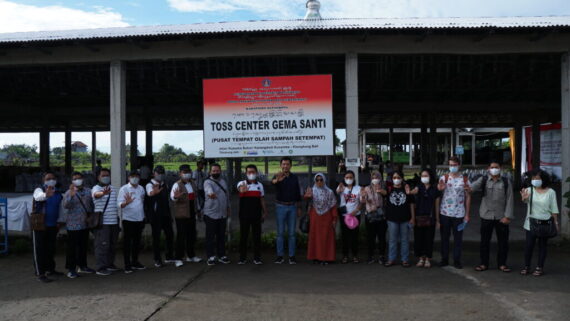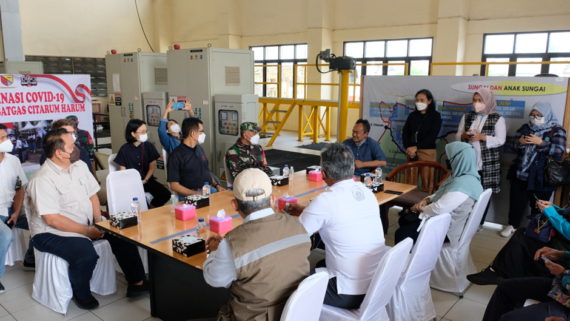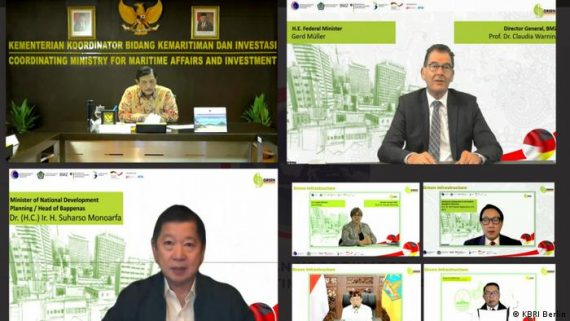GII Annual Workshop: Strengthening Coordination Among All Stakeholders
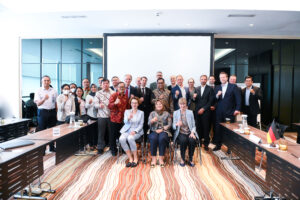
Kemenko Marves hosted a “High Level Policy Dialogue” on February 13th 2023 in Jakarta
The Coordinating Ministry for Marime Affairs and Investment (Kemenko Marves) is hosting the “Annual Workshop on the Green Infrastructure Initiative (GII)” on 30 November – 2 December 2022 in Bandung, West Java. Supported by the Gesellschaft für Internationale Zusammenarbeit (GIZ), at this workshop, all GII stakeholders gathered and discussed the status and results of the pre-feasibility study (PFS) of the green development investment project that had been proposed by the local government and discussed plans for follow-up actions. This is to make sure that the projects are in line with the policies and priorities of green infrastructure development from the central government.
Under the GII program, there are currently 18 proposals (dossier) submitted by local governments of six provinces to be processed into PFS development across three main themes; Water and Wastewater, Solid Waste Management and Urban Public Transport. Of the 18 proposals, nine of them have progressed to the PFS stage, while the rest aims for implementation in the next batch. These fifteen project proposals will then be reviewed by the relevant technical ministries and Bappenas under the coordination and facilitation of Kemenko Marves.
In his remarks on the first day of the workshop, Bapak M. Saleh Nugrahadi, Assistant Deputy for Watershed Management and Natural Resources Conservation of Kemenko Marves delivered a presentation about 10 GII Resolutions which were the results of the Second Session of the GII Steering Committee Meeting on 10 February 2022, which included among others Basic Regulations, Provincial Selection Criteria, Project Selection Criteria, and Establishment of Operational Steering Mechanism. In this presentation it was emphasized that the 10 GII Resolutions are the main guideline for selecting green investment projects under GII.
At the second day of the workshop, several coordination meetings took place discussing the status of the ongoing pre-feasibility studies (PFS) and plans for the next PFS for the three main GII sectors of water and waste management, solid waste management, and urban public transport. These meetings were attended by members of the provincial level task force, representatives of technical ministries as part of the national task force, facilitated by the Coordinating Ministry for Maritime Affairs and Investment.
Among the key takeaways from the coordination meeting for water and waste management sector was that it was necessary to confirm and finalize the readiness criteria (RC) for each investment package including clarity on institutional arrangements and patterns of cooperation between districts/cities, funding commitments from provincial and district/city governments, especially in financing and funding house connections (SPALD-T), and repair of septic tanks (fecal sludge management/FSM).
Meanwhile, the coordination meeting for solid waste management concluded that the investment plan for developing waste management needs to be sharpened. In addition to discussing RC as in other sector groups, more emphasis is being placed on the need to calculate operational costs and post-construction maintenance of infrastructure. Another important note from the discussion in this group is that infrastructure projects with small amount of project investment should not be supported by GII, but rather funded by the national or regional budget (APBD/APBN).
In the urban public transport sector, the coordination meeting concluded that transportation projects must be based on the urban functional-based Sustainable Urban Mobility Plan (SUMP) document. In addition, it is necessary to ensure the fulfillment of project readiness (readiness criteria) and the preparation of supporting activities to ensure continuous operation and maintenance. This is because the main goal of public transportation development is to revitalize mass public transport, creating sustainable and environmentally friendly public transportation.
On the third day of the workshop, Ibu Nani Hendiarti, Deputy for Environment and Forestry Management of Kemenko Marves, and Ibu Ina Lepel, Ambassador of Germany were virtually present. Mrs. Nani reminded that infrastructure development is the heart of national economic growth in order to create equitable distribution of development and people’s welfare. However, government finances are only able to provide around 29% of the funding needs. As such, the Indonesian government has encouraged and provided opportunities for the private sector, both from within and outside the country, to invest in environmentally friendly infrastructure development. GII is expected to be one of the opportunities to cover these deficiencies. The GII program is also closely aligned with the Indonesian Government’s program in low carbon development and supports the achievement of national commitments to mitigate the impacts of climate change.
Meanwhile, Ibu Ina Lepel reminded that this annual workshop is very important and reflects the strong commitment of Indonesia and Germany to enhance their bilateral cooperation through GII. In addition, .Ibu Ina hopes that this workshop will also discuss concrete steps that are needed to accelerate the inclusion of GII projects into the Bappenas blue book in December 2022.
The two-and-a-half-day workshop concluded with the signing of the minutes of the meeting on PFS results and PFS proposals for 2023 by representatives of the national ministries and six GII partner provinces.
 English
English Indonesia
Indonesia
